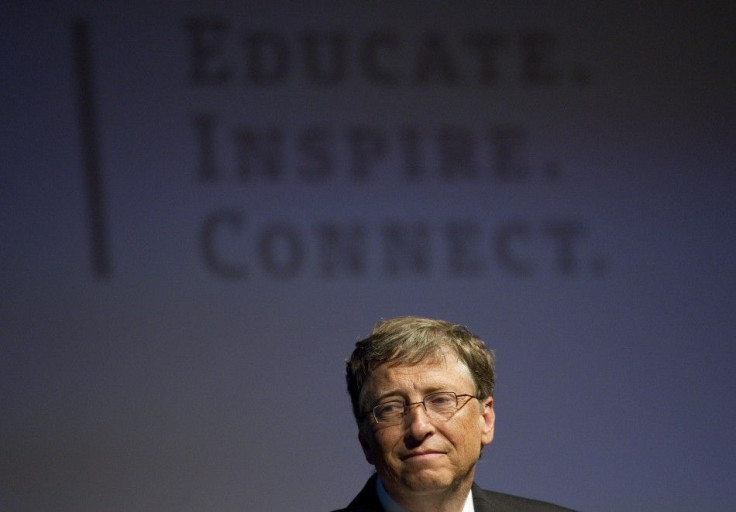Bill Gates Dismisses Steve Jobs Criticisms, Talks Original Mac

Bill Gates and Steve Jobs—lauded as grandfathers of the personal computer—are known for their contrasting personalities and even more for their contrasting business models. While Microsoft Windows has come to represent the pinnacle of high-volume business computing, Apple OSX has come to represent a digital artists' workstation.
The two men's companies, Apple and Microsoft, epitomize the greatest achievement among the earliest computer companies. They are the tech world version of The Beatles and Rolling Stones, and their fans identify strongly with the personas they've imbued in all their company's products and in their company's corporate cultures.
That's why it was strange to hear ex-Microsoft chief executive Bill Gates claim partial credit for the original Macintosh computer during his recent interview with Christiane Amanpour. The comment, though fleeting, was made during the ABC show This Week with Christiane Amanpour, where Gates spent time talking about The Bill & Melinda Gates Foundation, Warren Buffet, and the Occupy Wall Street movement.
Toward the end of their discussion, Amanpour questioned Gates directly about comments Jobs made in his biography. Amanpour read Jobs' quote to Gates: [Gates] is unimaginative, has never invented anything and shamelessly ripped off other people's ideas.
Gates remained relatively stone-faced as the comments were read to him.
Steve and I worked together creating the Mac—we had more people on it [that] did the key software for it, said Gates. Over the course of the 30 years we worked together, he said a lot of very nice things about me, and he said a lot of tough things.
Gates acknowledged the criticism, but also critiqued Jobs using points he'd made in previous interviews: [Jobs] faced, several times at Apple, the fact that their products were so premium-priced, that they literally might not stay in the market place.
The fact that we were succeeding with high volume products, including a range of prices because of the way we worked with multiple companies, it's tough, said Gates. So the fact that he, at various times, felt beleaguered, the fact that he felt like he was the good guy and we were the bad guys, it's very understandable.
In the end, Gates made it very clear that there were no hard feelings toward Jobs: I respect Steve, Gates said. We got to work together, and we spurred each other on even as competitors. None of that bothers me at all.
© Copyright IBTimes 2025. All rights reserved.





















